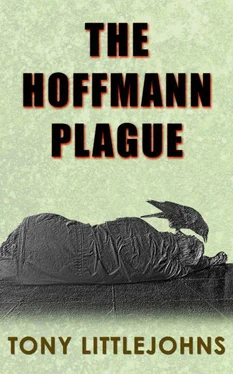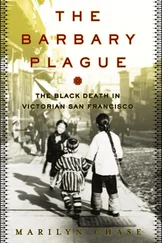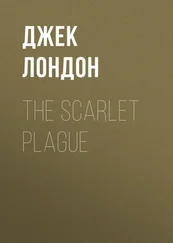By then it was mid-morning and he sat there thinking about what to do next. His apathy and depression over the last month or two was fading, and his brain was working overtime to come up with new plans and what to do for the best. He felt the first stirrings of positivity since the world had turned to hell several months ago, and that he might, actually, be able to survive. And then the thought hit him: Survive for what? There’s nothing left! Oh, well; he’d just do what he could to muddle through and stay alive, and see what transpired. His favourite verse from A Shropshire Lad by A.E. Housman came to him, which he thought was rather apt under the circumstances:
Into my heart an air that kills
From yon far country blows:
What are those blue remembered hills,
What spires, what farms are those?
That is the land of lost content,
I see it shining plain,
The happy highways where I went
And cannot come again.
He’d always had a love of survival and bushcraft programmes and books, so he knew the Rule of Threes: under normal or favourable conditions a human being could survive for three minutes without air, three days without water and three weeks without food.
He hadn’t given it any thought after waking from the coma, but he wondered now how he’d survived for six days without fluids. He kind of knew that in a coma a person’s body more or less shut down and its needs were minimal, so he guessed that was it. He liked knowing things, though, and had the electricity and the internet still been working, he would have Googled it. Had he done so, he would have found documented cases of earthquake victims surviving after being buried for eight days or more.
Well, air definitely wasn’t a problem and water shouldn’t be an issue for him, he thought. Egerton Park was only a five minute walk away, where there was an ornamental lake. He knew that as long as he followed basic survival rules of filtering and/or boiling the water, there should be no problem. Added to that he still had many packs of bottled water, along with whatever rainwater he could collect, but he wanted to save his supplies for difficult times and make use of what was around him. He studied an Ordnance Survey map; if it came to it and he was desperate there was a stream just beyond Sidley, about one-and-a-half miles away, and there was also a large network of ancient waterways in the marshland beyond Cooden; two to three miles away. He didn’t relish the thought of having to walk there for water and carrying it back on a regular basis: a litre of water weighed one kilo.
His car still worked and he had run it several times to charge the battery, but he knew he mustn’t rely on it, and should only use it in emergencies or when he needed to make longer trips. He had a thought: his bicycle was in good shape and he had spare parts for it, along with puncture-proof tyres. There was also a bike shop close-by where he could get spares. If he got some paniers and a rack for it he was sure he could adapt them for carrying water containers and other things. Okay, then: he needed to go to Halfords on the Ravenside Retail Park two miles away, to see what he could find. Water was his highest priority and he wanted to cover all eventualities, so wrote it down at the top of his list.
Food was, seemingly, a more difficult issue than water. He could raid all the houses in the area to find tinned produce, but that wasn’t a good long-term solution, and he shuddered at the thought of going into all those houses filled with decomposing corpses. He needed fresh food, and apart from needing it he craved it. He’d always been a keen cook and hated using convenience food and tinned produce. He needed protein, fat, carbohydrates, fresh fruit and vegetables. He was fairly confident about catching fish from the sea. He wrote on his list to visit the angling shop in Sackville Road and the sea angling club by Galley Hill. He could also lay snares for rabbits, birds and other animals if he needed to, he imagined. There were plenty of green spaces around Bexhill, as well as the railway line, so he was pretty sure that finding rabbits wouldn’t be an issue.
Vegetables and carbohydrate staples were going to be more difficult to source. He knew there was an abundance of fruit trees in the area, so apples, pears and even cherries wouldn’t be hard to gather; although it would take time to find suitable locations and they would only be available for a short time each year. He added it to his list. He thought about vegetables, then glanced down to the floor and saw the stack of books lying there. During that first busy week of stockpiling supplies and equipment, he’d gone to several bookshops in Bexhill and Hastings and bought books on many subjects that he knew little about, and which he thought might be useful for the future. There were books on growing fruit and vegetables, farming, survival, domestic skills such as repairing and making clothes, along with other essential craftwork books.
Looking at those books, he realised he couldn’t stay in his flat for much longer and needed to find somewhere else to live if he was to survive. His flat didn’t have a chimney, so he couldn’t light a fire for warmth or for cooking indoors. After the gas and electricity had failed he had been very cold and had put several more blankets on his bed. He needed somewhere with an open fire or, preferably, a log-burning stove, and a good-sized garden where he could grow vegetables, fruits and herbs. His small courtyard was paved over and had no soil areas for growing things.
He felt this was a priority and resolved to start looking for somewhere suitable in the coming days. He looked out the window and also at his watch: there were still eight or nine hours of daylight left, so he decided to walk to the retail park and then get his bike fitted with a rack and paniers. That would make getting about much easier and quicker – not that time was an issue – and would mean he could roam further during daylight hours when he needed to.
He made ready to go out, strapping the machete and knife to his belt. He put the hammer and the small wrecking bar in his rucksack, along with a water bottle, a torch and a packet of flapjack. He donned his coat and hat and left the flat. He decided to walk along the sea road and over Galley Hill to get to the retail park; that way he could stop by the angling club and check out boats and oars, etc. It was a slightly longer walk, but far more pleasant than the main road and he needed to visit the angling club anyway.
Walking down Sackville and past the angling shop, he looked at the metal grille over the door, but saw that the windows were unprotected, so he could smash the glass to get in when he needed to. It made him think, though, that he might need something more than just a wrecking bar to break into other places, so he decided to visit B&Q while he was at the retail park and get some bolt cutters. They would be a big and heavy item to carry around, but with a pair he could cut off padlocks when he needed to.
As he turned from Sackville into Marina, the woman watched him from her apartment. She’d come home only ten minutes earlier from a foraging trip and was glad she hadn’t been a bit later and met him; at least not yet. She wasn’t sure if she was ready for that, or how she felt. She’d seen him a few times over the last month and he probably lived fairly close by. He seemed to be coping and surviving, like her, and there might be items or knowledge they could trade. Despite being a strong and determined woman, though, she was wary and still a little scared of meeting any male survivors.
A few months earlier, when there were still some people on the streets, she’d been attacked in an alley by a man who had tried to force himself on her. He’d clearly been infected and she knew that was how she had contracted the plague, even though she’d been wearing a mask. She’d managed to fight him off and run away by kneeing him in the crotch and slashing his face with her keys, but it had shaken her terribly. Her symptoms had started within a few days and she had slipped into a coma, but had woken up after five days, weak and dehydrated.
Читать дальше












